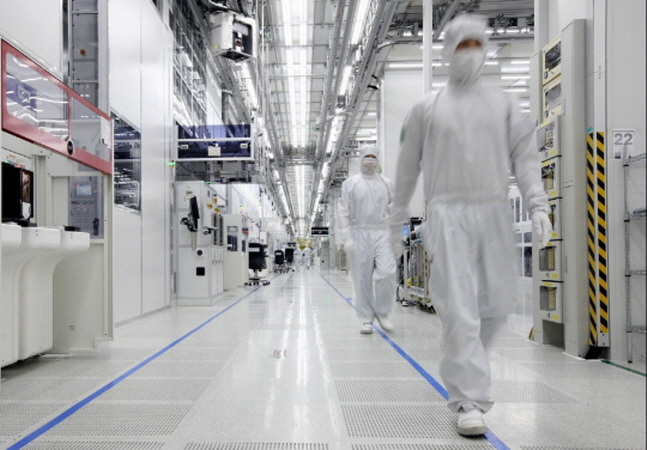A continued battle between the US and China to fight for global technological hegemony may pose higher risks to Korea’s two-biggest memory chipmakers, Samsung Electronics and SK hynix, next year, according to a report released by the Korea International Trade Association on Monday.
During the latest G-20 summit, the US and China temporarily agreed to a cease-fire over their prolonged trade war. However, it will not be easy for the two nations to reach a sustainable agreement as the essence of their trade conflict is to fight for technological hegemony, according to the latest trade report.
 |
(Samsung Electronics) |
“Next year, the two nations are expected to begin the second round of technology conflict and the US is expected to further press China in chip areas by halting the supply of its key equipment,” said Je Hyun-jung, a researcher at the KITA.
Currently, global chipmakers need equipment made by some US companies, such as Applied Materials and LAM Research, in order to realize more fine-tuned circuits as chip production becomes increasingly modernized.
“If the supply halt is realized, it will negatively affect Korean chipmakers, Samsung Electronics and SK hynix, which also have production plants in China,” Je said.
Currently, Samsung Electronics runs V-NAND flash memory plants in Xian, central China, and around 20 percent of its total V-NAND is produced in China. SK hynix operates a DRAM memory factory in Wuxi, eastern China, and around 40 to 50 percent of its total DRAM is produced in the nation.
Such trade restriction from the US may not be too unrealistic. In October, the US decided to limit the US companies from exporting their equipment parts and software to Chinese chipmaker Fujian Jinhua Integrated Circuit on the grounds that the Chinese firm may threaten the US military system.
Last month, the US Bureau of Industry and Security announced a list of 14 areas, including artificial intelligence, biotechnology and quantum computer, to restrict exports in order to protect its future industries.
“Despite the pressure from the US, China is expected to continue to push to achieve its goal of global tech supremacy through ‘Made in China 2025.’ Korean firms should pay keen attention to the ongoing trade moves,” the researcher Je said.
The goal of “Made in China 2025” is to increase the Chinese-domestic content of core materials to 40 percent by 2020 and 70 percent by 2025. China set aside 200 trillion won ($178 billion) for its chip industry with a goal of achieving 70 percent of self-sufficiency by 2025.
By Shin Ji-hye(
shinjh@heraldcorp.com)








